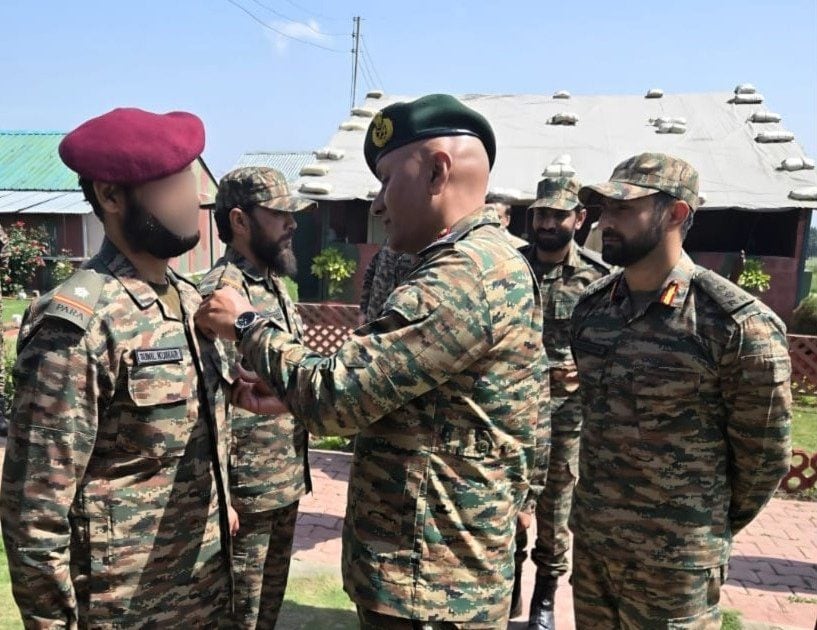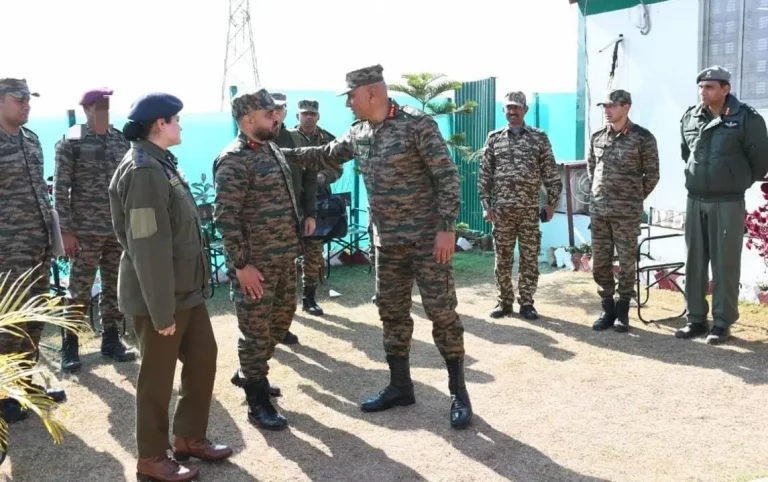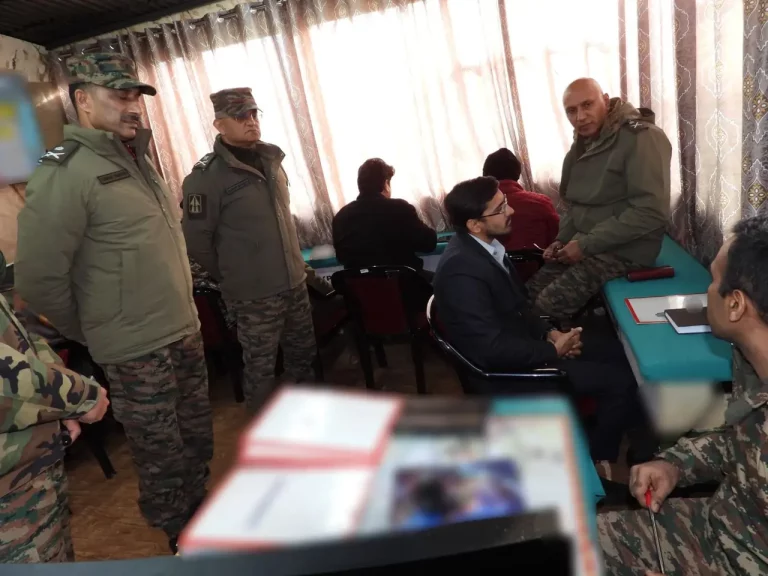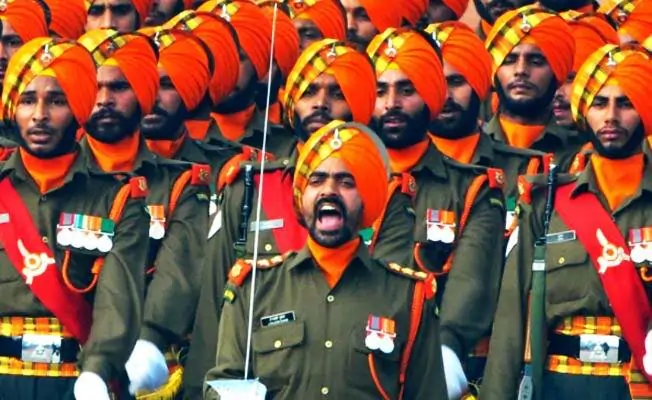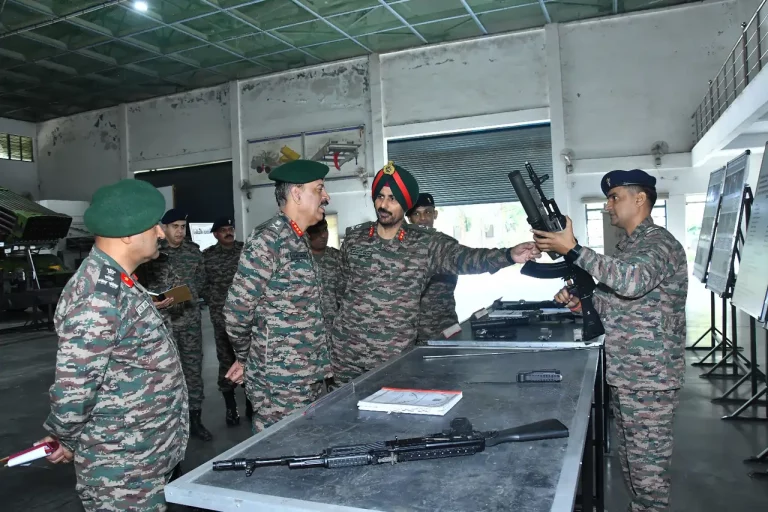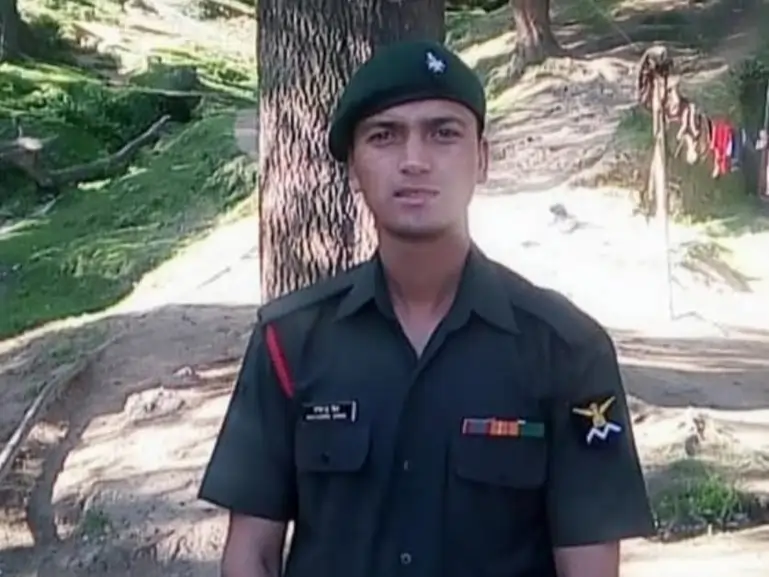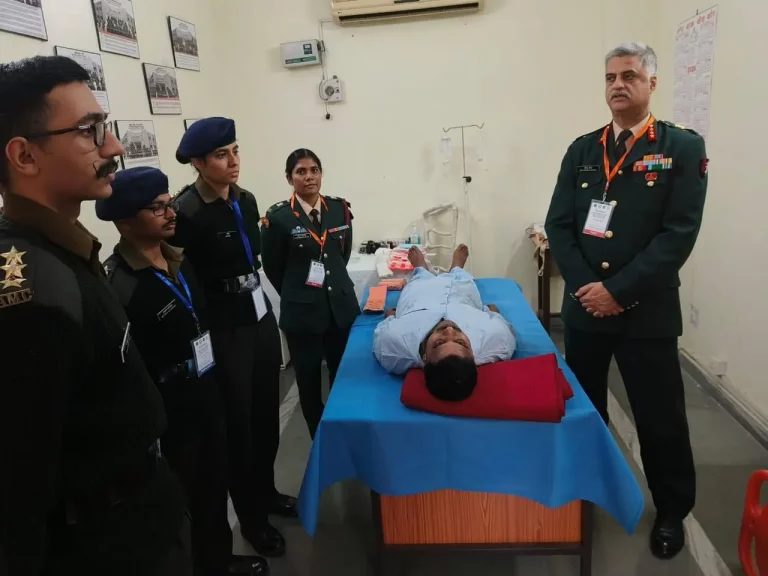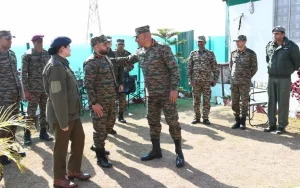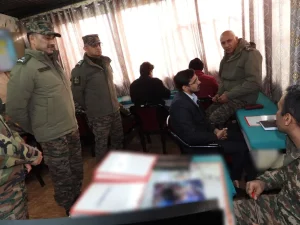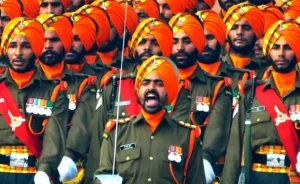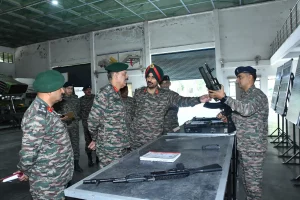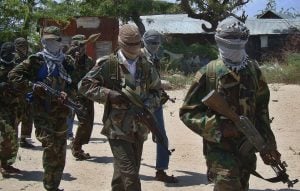In a significant demonstration of strategic military oversight, Lieutenant General Pratik Sharma, the Commander of the Indian Army’s Northern Command, undertook a comprehensive review of security measures and operational readiness in the Kashmir Valley. This visit comes in the wake of the tragic Pahalgam terror attack on April 29, which resulted in the deaths of 26 individuals, primarily Indian tourists, exacerbating existing tensions between India and Pakistan.
During his visit to a crucial Rashtriya Rifles base, Lt Gen Sharma praised the troops for their proactive approach and operational excellence, highlighting the Army’s mission to assert dominance in both cognitive and physical realms. This review underscores the important role of specialized counter-insurgency forces in maintaining stability in Jammu and Kashmir, particularly as regional security concerns have grown more acute.
Assuming command on May 1, 2025, just weeks prior, Lt Gen Sharma brings with him a wealth of experience from his previous roles, including Deputy Chief of Army Staff (Strategy) and Director General of Military Operations. His leadership marks a renewed emphasis on strategic deterrence and information warfare in one of India’s most challenging security environments.
Imagery from the visit depicts the Army Commander engaging with personnel, awarding commendations, and conferring with senior officers, all set against the contrastingly beautiful yet conflict-ridden landscape of the region. This visit is timely, occurring just after a notable increase in military action along the Line of Control, where, on May 7, the Indian military executed precision missile strikes against terrorist camps in Pakistan and Pakistan-administered Kashmir as a retaliation for the earlier attack. Pakistan subsequently claimed to have brought down five Indian aircraft, a statement that remains unverified by Indian authorities, yet has attracted significant media attention and heightened diplomatic tensions.
The Rashtriya Rifles, established in 1990 and operating under the Armed Forces Special Powers Act (AFSPA), continues to be integral to India’s counter-insurgency strategy, having successfully rendered areas like Doda and Tral free from militancy—a pivotal achievement following the abrogation of Article 370 in August 2019.
Amid escalating external threats, particularly from China and ongoing proxy warfare from Pakistan, the Northern Command is crucial to India’s defense framework, overseeing both the western front with Pakistan and the Line of Actual Control with China. Recent reports indicating an uptick in the deployment of Chinese-origin military technology in Pakistan, including drones and advanced aircraft, have added urgency to India’s defensive initiatives.
Lt Gen Sharma’s operational review highlights a strategic commitment to enhancing counter-insurgency tactics while fostering a broader deterrence capacity. As the Kashmir Valley continues to remain a point of contention, the leadership under Sharma is set to fortify India’s military readiness in the face of shifting geopolitical challenges.
